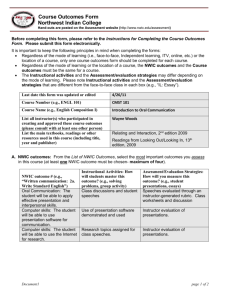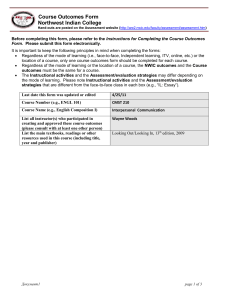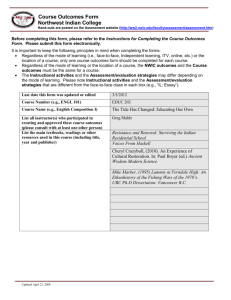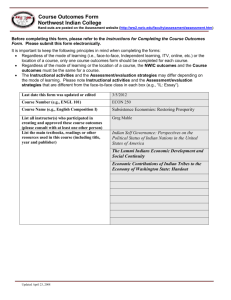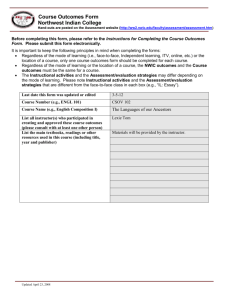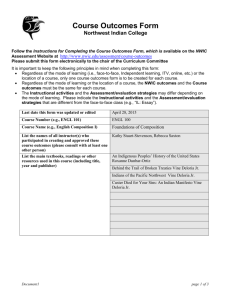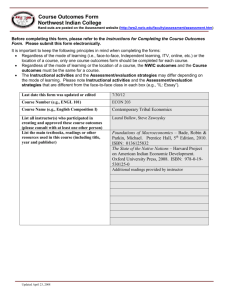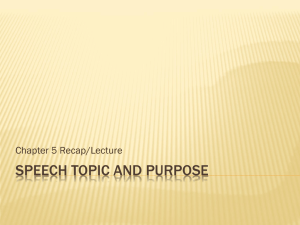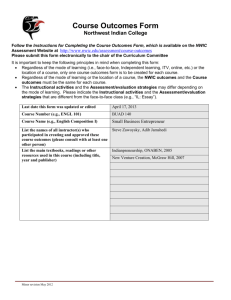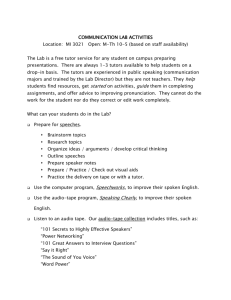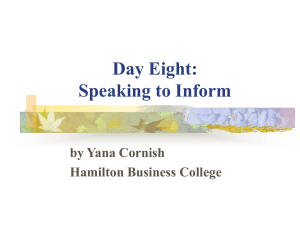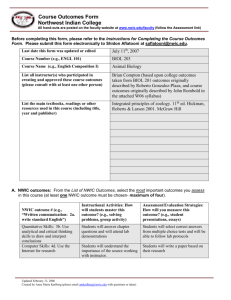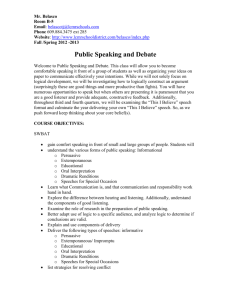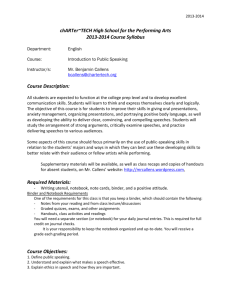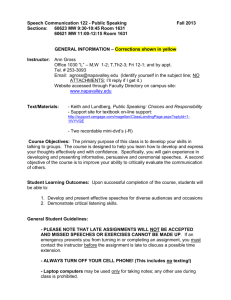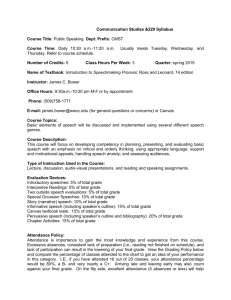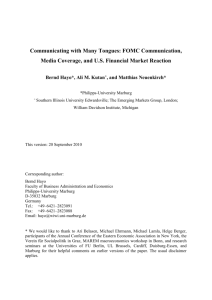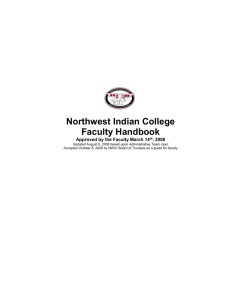CMST 220 - Northwest Indian College
advertisement
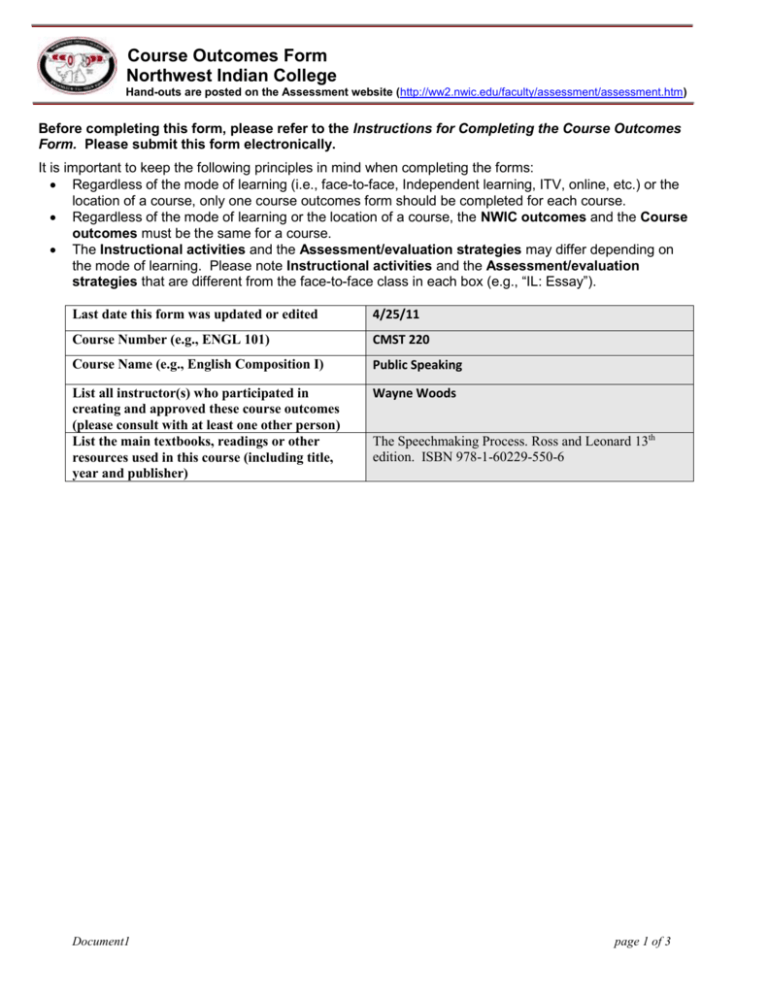
Course Outcomes Form Northwest Indian College Hand-outs are posted on the Assessment website (http://ww2.nwic.edu/faculty/assessment/assessment.htm) Before completing this form, please refer to the Instructions for Completing the Course Outcomes Form. Please submit this form electronically. It is important to keep the following principles in mind when completing the forms: Regardless of the mode of learning (i.e., face-to-face, Independent learning, ITV, online, etc.) or the location of a course, only one course outcomes form should be completed for each course. Regardless of the mode of learning or the location of a course, the NWIC outcomes and the Course outcomes must be the same for a course. The Instructional activities and the Assessment/evaluation strategies may differ depending on the mode of learning. Please note Instructional activities and the Assessment/evaluation strategies that are different from the face-to-face class in each box (e.g., “IL: Essay”). Last date this form was updated or edited 4/25/11 Course Number (e.g., ENGL 101) CMST 220 Course Name (e.g., English Composition I) Public Speaking List all instructor(s) who participated in creating and approved these course outcomes (please consult with at least one other person) List the main textbooks, readings or other resources used in this course (including title, year and publisher) Wayne Woods Document1 The Speechmaking Process. Ross and Leonard 13th edition. ISBN 978-1-60229-550-6 page 1 of 3 A. NWIC outcomes: From the List of NWIC Outcomes, select the most important outcomes you assess in this course (at least one NWIC outcome must be chosen- maximum of four). NWIC outcome # (e.g., “Written communication: 2a. Write Standard English”) Oral communication skills: Students will be able to apply effective oral presentation skills. Instructional Activities: How will students master this outcome? (e.g., solving problems, group activity) In class speeches by students. Assessment/Evaluation Strategies: How will you measure this outcome? (e.g., student presentations, essays) Instructor generated evaluations. Listening to model speeches Written communication skills: Worksheets, written speeches, Acceptable completion of speeches, outlines, and Students will be able to write outlines of speeches responses to readings standard English in a variety of text forms using various credible sources. Computer skills: Students will Research on discussion issues be able to use word processing software for communication and the Internet for research.. Student information as it is presented to the class by other students in speeches B. Course outcomes: In order of priority, list the most important other learning outcomes for this course that you assess (a maximum of 10). Other course outcomes: Complete the sentence – As a result of this course, students will be able to… identify the cultural aspects of oral presentations. Instructional Activities: How will students master this outcome? (e.g., solving problems, group activity) Class discussions, lectures and from textbook Assessment / Evaluation Strategies: How will you measure this outcome? (e.g., student presentations, essays) Student feedback to instructor. utilize presentation and organizational skills in other situations and classes. Comparison of organization with other class expectations. Evaluation of same subject with two different class assignments identify his/her strengths and weaknesses in oral communication and be able to use their strengths in giving an oral presentation. Student questionnaires Initial, mid-term, and ending questionnaire. present information and arguments orally Document1 Speeches in class Instructor developed rubric. page 2 of 3 organize various styles of oral presentations, including electronically assisted (… ?) Handouts and from the textbook Instructor evaluation analyze audiences in a variety Class discussion, textbook of settings. examples, and videos of famous speeches. Evaluation of speeches using rubric. effectively use researched references to support oral arguments. Evaluation of speeches Document1 Class lectures, discussions, and evaluations page 2 of 3
